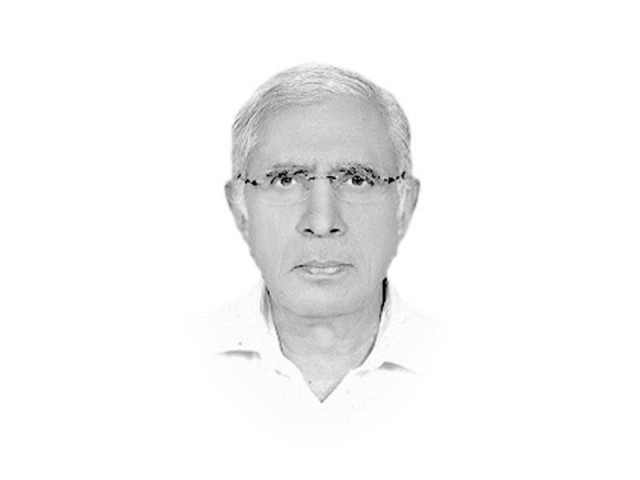Winds of change?
For too long the country’s foreign policy had been forcibly made to serve the objectives of the GHQ

The writer served as Executive Editor of The Express Tribune from 2009 to 2014
The press release that was issued after the security meeting was too brief but what it said and on whose behalf it was said gives one a feeling that perhaps Pakistan is well poised to take a look at new foreign policy options other than the 70-year-old ones that had brought the country to its current sorry pass.
The meeting presided over by Prime Minister Nawaz Sharif and attended by the seven that matter in the power corridors of our civil and military hierarchy talked of ‘shared objective’ indicating that the two known to have pursued differing objectives all these seven decades have at last decided to be on one page while formulating the country’s foreign policy.
‘Peaceful coexistence, mutual respect and economically integrated region’ seems now to be this ‘shared objective’ of the civil and military establishments and this objective according to the decision taken at the meeting would aim at establishing ‘strong and mutually beneficial relations with countries in the region’.
Those who attended the meeting included, in order of protocol: Finance Minister Shaq Dar, Interior Minister Chaudhry Nisar Ali Khan, Army Chief General Qamar Javed Bajwa, DG Inter-Services Intelligence Lt General Naveed Mukhtar, PM's Adviser on Foreign Affairs Sartaj Aziz and his Special Assistant Tariq Fatemi and National Security Advisor Lt General (retd) Nasser Khan Janjua.
The fact that the PM during the meeting had described the CPEC as a cornerstone of the country's quest for regional connectivity and shared prosperity hints at Beijing having some decisive say in Pakistan’s search for new foreign policy options in the region.
For too long the country’s foreign policy had been forcibly made to serve the objectives of the GHQ without a thought to its impact on the country’s geopolitical interests and its socio-economic being. And attempts by successive civilian governments to normalise relations with neighbours would often be painted by unseen hands as unpatriotic moves and would abruptly be wrecked by either unleashing stage-managed public wrath on the streets against these policies or some disgruntled elements would instigate the so-called non-state actors into pushing the country on to the brink of a war with the very neighbour with which Islamabad was trying to mend fences.
Now that China and Russia have thrown their weight behind Pakistan’s push for Afghan peace deal one would perhaps find the Ghani administration more willing to talk to Pakistan. And as a goodwill gesture, Pakistan could also offer Afghanistan the land route connectivity to India for over-land trading. China and Russia would surely support this gesture, particularly China, the initiator of One Road One Belt project.
On the face of it the timing to reach out to India appears rather inopportune as New Delhi seems hell-bent on isolating Pakistan globally and its new Army Chief is publicly talking of ‘more’ surgical strikes. But then one should not forget that Indian Prime Minister Narendra Modi, against the run of events in 2015, had first publicly approached our PM in Paris on the side-lines of Climate summit and then made a surprise stopover in Lahore to attend the wedding ceremony of PM’s grand-daughter. Had the Uri incident which is blamed on Pakistan not happened perhaps things would have been much different from what they are today. So, perhaps reactivation of Mumbai massacre case and resumption of joint investigations into the Pathankot event would create the required mood for India to reciprocate Pakistan’s attempts to reach out to New Delhi anew.
Published in The Express Tribune, January 7th, 2017.
Like Opinion & Editorial on Facebook, follow @ETOpEd on Twitter to receive all updates on all our daily pieces.














COMMENTS
Comments are moderated and generally will be posted if they are on-topic and not abusive.
For more information, please see our Comments FAQ